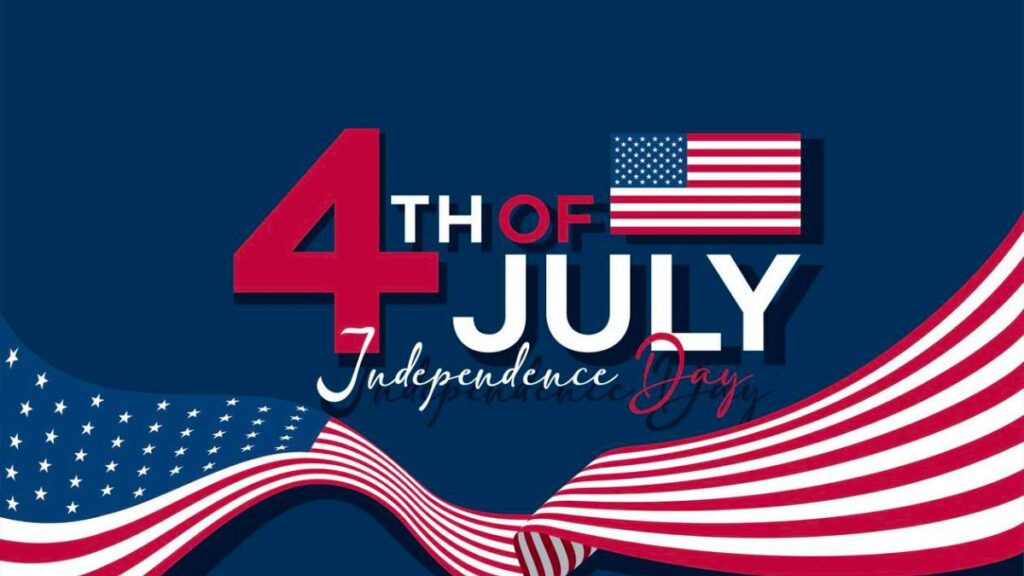The 4th of July, also known as Independence Day, is a significant day in American history. It marks the birth of the United States as a free and independent nation, having declared its independence from Great Britain in 1776. This day is celebrated with much enthusiasm and fervor across the country, with parades, fireworks, barbecues, and other festivities. In this article, we will delve into the history and significance of the 4th of July, exploring its origins, evolution, and impact on American society.
Origins of the 4th of July

The origins of the 4th of July can be traced back to the American Revolution, a period of intense conflict between the American colonies and Great Britain. The colonies were dissatisfied with British rule, which they felt was oppressive and restrictive. The British Crown imposed heavy taxes on the colonies, which led to widespread resentment and unrest. The colonists felt that they were being treated unfairly and that their rights as British citizens were being violated.
In response to these grievances, a group of delegates from the 13 American colonies came together in Philadelphia in 1775 to form the Continental Congress. The Congress was tasked with addressing the grievances of the colonies and finding a peaceful resolution to the conflict with Great Britain. However, as tensions continued to escalate, the Congress began to consider more drastic measures.
On June 7, 1776, Richard Henry Lee, a delegate from Virginia, introduced a resolution in the Congress declaring the colonies to be “free and independent states.” The resolution was met with widespread support, and a committee was formed to draft a formal declaration of independence. The committee consisted of five members: Thomas Jefferson, John Adams, Benjamin Franklin, Roger Sherman, and Robert R. Livingston.
Jefferson, a skilled writer and thinker, was tasked with drafting the document. He drew upon the ideas of Enlightenment philosophers such as John Locke and Thomas Paine, as well as the principles of natural rights and self-government. The resulting document, known as the Declaration of Independence, was a powerful and eloquent statement of the colonists’ grievances against Great Britain and their reasons for seeking independence.
On July 4, 1776, the Continental Congress adopted the Declaration of Independence, marking the birth of the United States as a free and independent nation. The document was signed by 56 delegates, including John Hancock, the president of the Congress, and Benjamin Franklin, Thomas Jefferson, and John Adams, members of the drafting committee.
Evolution of the 4th of July
In the early years of the United States, the 4th of July was not widely celebrated. The focus was on building a new nation and establishing its institutions. However, as the years passed, the significance of the day began to be recognized, and celebrations began to take place.
The first recorded 4th of July celebration took place in 1777, in Philadelphia, where the Declaration of Independence had been adopted. The celebrations included a parade, a thirteen-gun salute, and a dinner for the Continental Congress. In the following years, similar celebrations took place in other cities and towns across the country.
The 4th of July became a federal holiday in 1870, when Congress passed a law making it a legal holiday for federal employees. In 1938, Congress extended the holiday to all federal employees, making it a day of rest and celebration for all Americans.
Impact of the 4th of July
The 4th of July has had a profound impact on American society and culture. It is a day that celebrates the principles of freedom, equality, and self-government, which are central to the American identity. The 4th of July serves as a reminder of the sacrifices made by the founding fathers and the generations that followed to establish and protect these principles.
The 4th of July is also a day of unity and pride, bringing Americans together to celebrate their shared heritage and values. It is a time for families and communities to come together, to share meals and stories, and to enjoy the festivities that have become a hallmark of the day.
Moreover, the 4th of July has a broader significance beyond the borders of the United States. It is a symbol of the ideals of freedom and self-determination, which have inspired people around the world to fight for their own independence and rights.
Conclusion
The 4th of July is a day of great historical and cultural significance in the United States. It marks the birth of the nation as a free and independent entity, and it celebrates the principles of freedom, equality, and self-government that are central to the American identity. The 4th of July is a time for unity, pride, and reflection, as Americans come together to celebrate their shared heritage and values. As we commemorate this important day, let us remember the sacrifices made by those who came before us, and let us continue to strive for a better, more just, and more equitable society for all.




